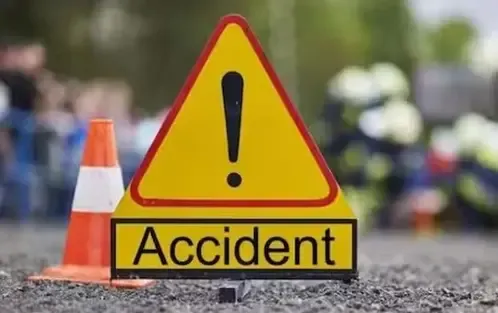South African Authorities Intensify Action Against Illegal Food Enterprises Amid Foreign 'Fronting' Concerns

Synopsis
Key Takeaways
- Registration Deadline: February 28, 2025 set for food businesses.
- Fronting Concerns: Local citizens allegedly aiding undocumented foreigners.
- Health Safety: Collaboration with environmental health practitioners.
- Legal Ramifications: Criminal charges for aiding illegal operations.
- Business Compliance: Strict adherence to food handling regulations required.
Johannesburg, Feb 14 (NationPress) With a mere two weeks remaining for food-handling entities to register, the South African government is ramping up enforcement efforts to eliminate illegal operations. This action has highlighted worries regarding fronting practices by undocumented foreigners, allegedly supported by local residents.
The tragic loss of numerous lives—primarily children—and the hospitalization of thousands due to food-borne diseases led the South African government to mandate business registration for all food-selling and handling establishments in 2024.
According to National Joint Operational and Intelligence Structure spokesperson Mava Scott, locals registering businesses for foreign nationals constitutes a criminal offense, as reported by Xinhua news agency.
“We have received various complaints and concerns from the community. It appears that individuals are indeed fronting for others. This is why we caution against such actions, which are punishable offenses,” Scott remarked.
In December 2024, South African President Cyril Ramaphosa set February 28, 2025, as the cutoff for all spaza shops and food-handling outlets to finalize their registrations. Scott mentioned efforts are underway to thoroughly verify the legitimacy of those registering as business owners.
“The first implication is that you commit a crime, as per the Immigration Act. You cannot assist an illegal foreigner in any activity in the country, including business registration. This will lead to prosecution under that act,” Scott added.
“Moreover, from an economic perspective, if you aim to earn a profit, this will jeopardize both you and your business. If found in violation, you will face prosecution and be barred from operating your intended business, affecting both you and the individual you are trying to help,” he explained.
Scott further indicated that law enforcement is collaborating with environmental health practitioners to ensure that the food being sold complies with all health standards and regulations.
Businesses failing to adhere to health, environmental, and food-handling regulations will not be permitted to operate beyond this deadline.









